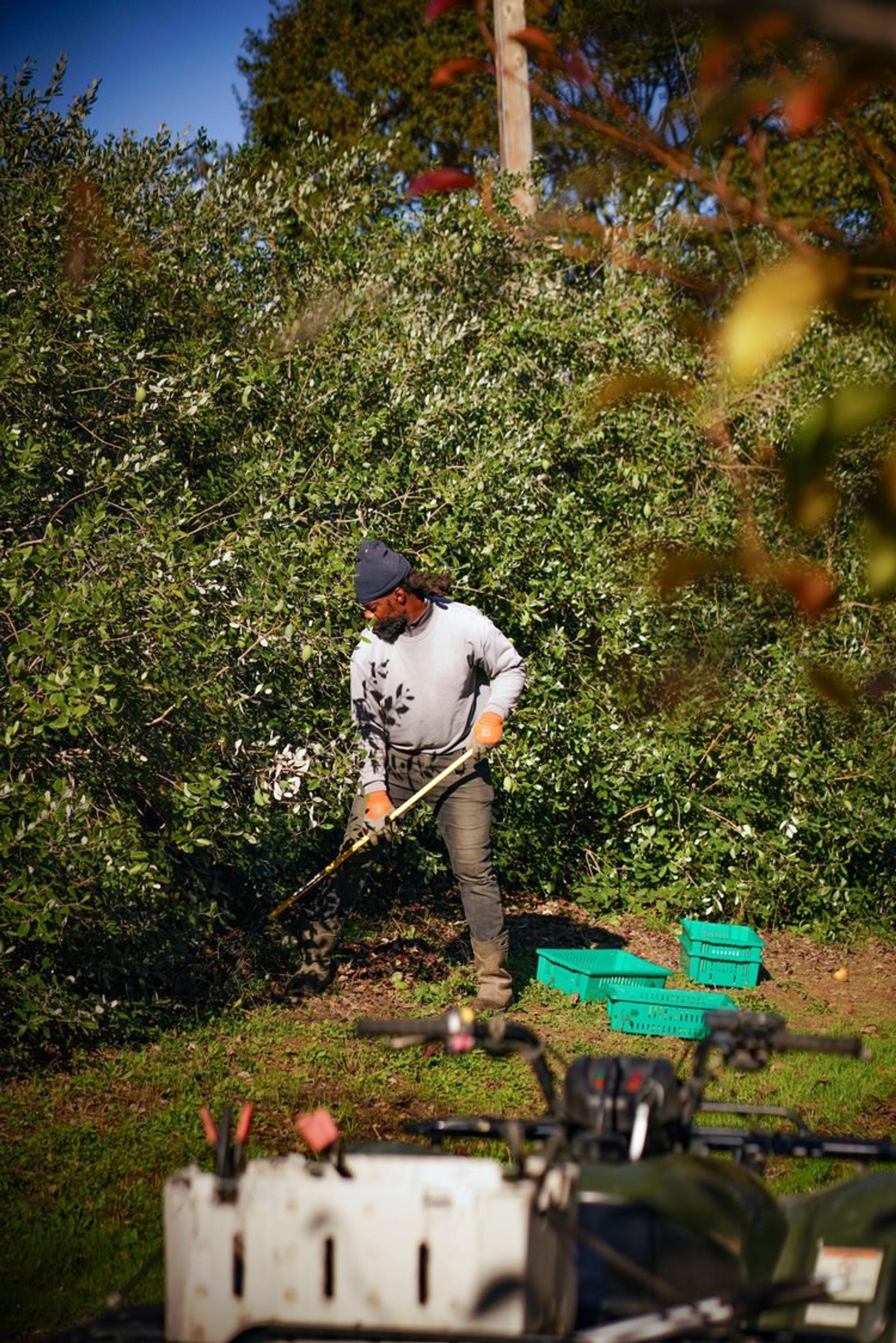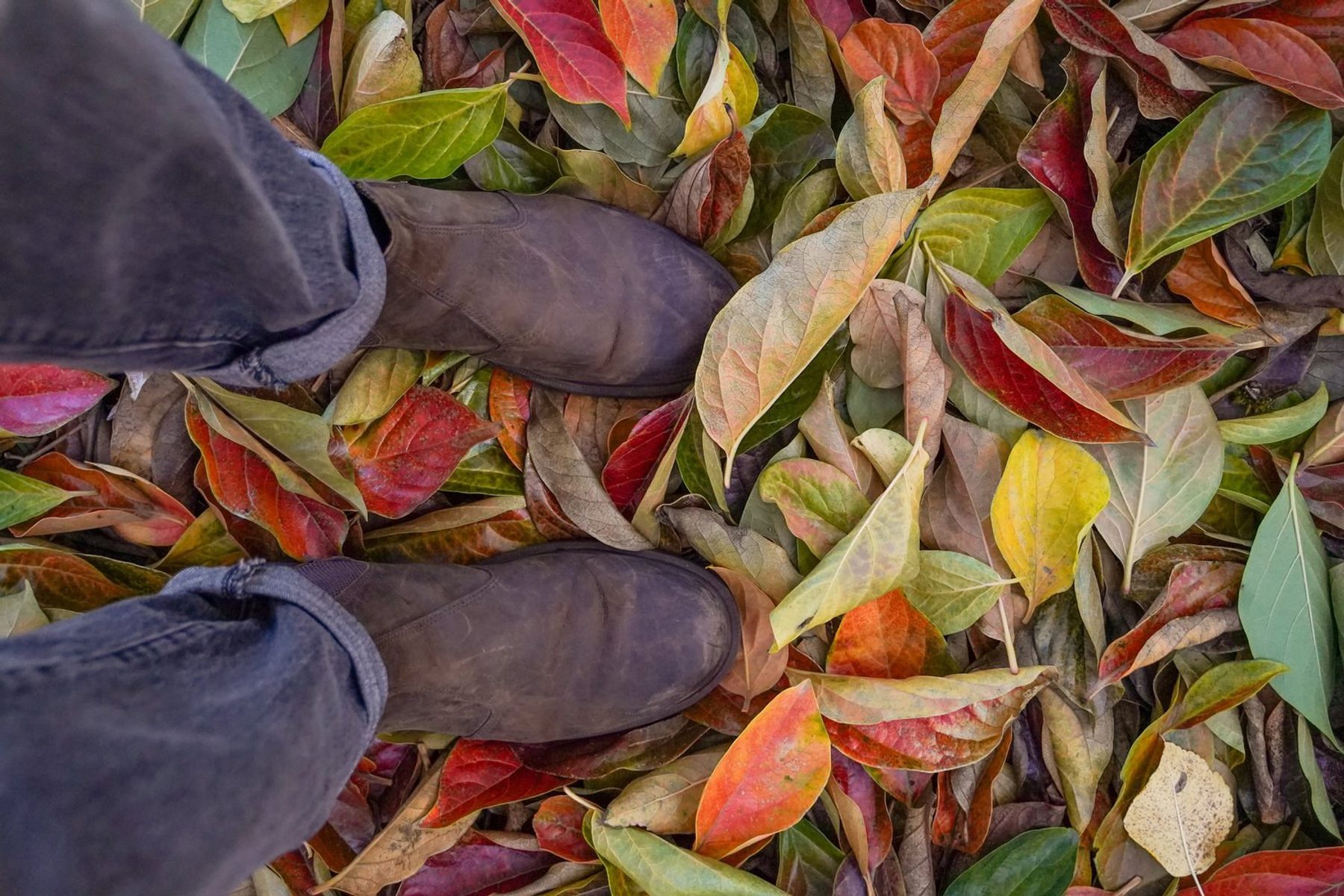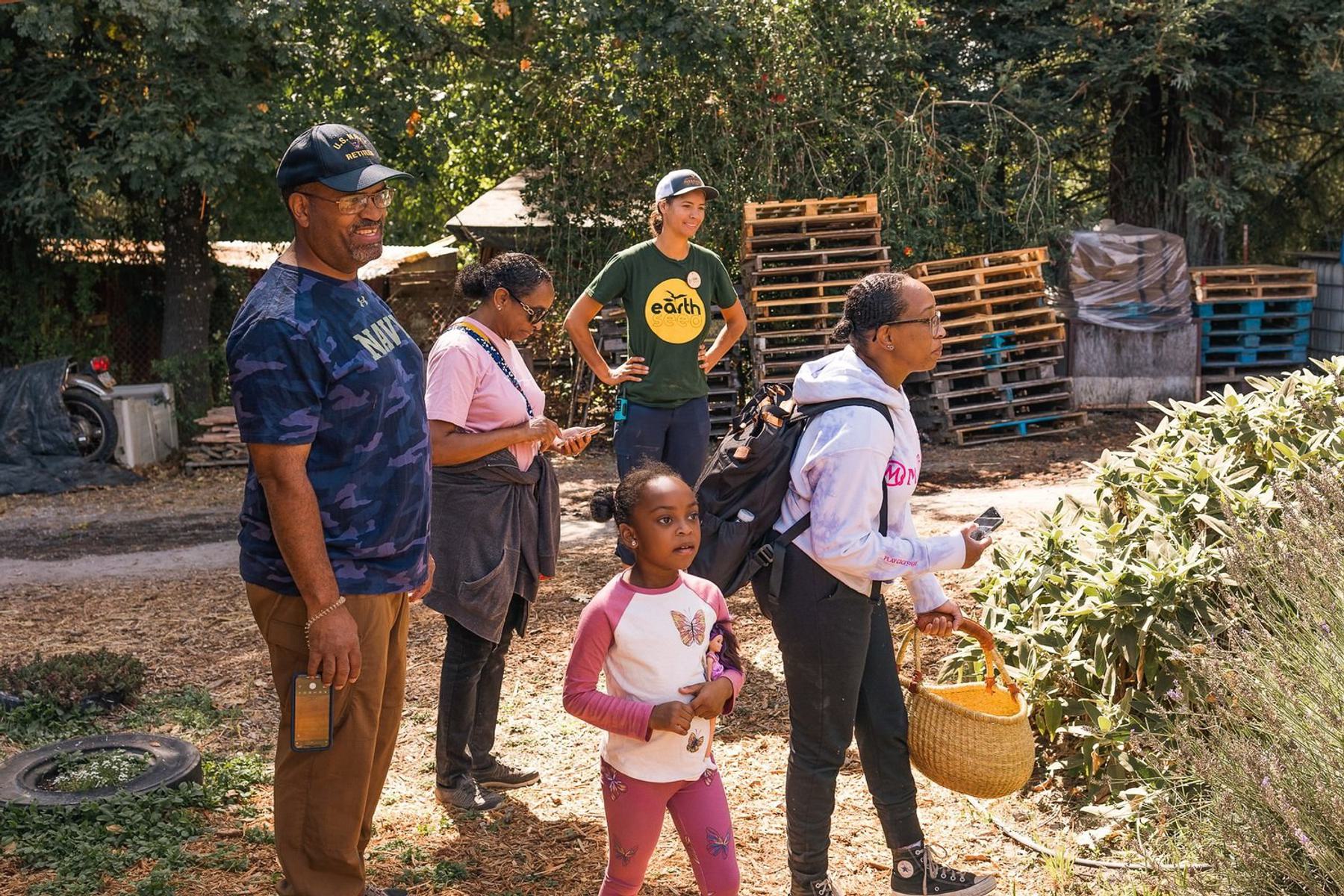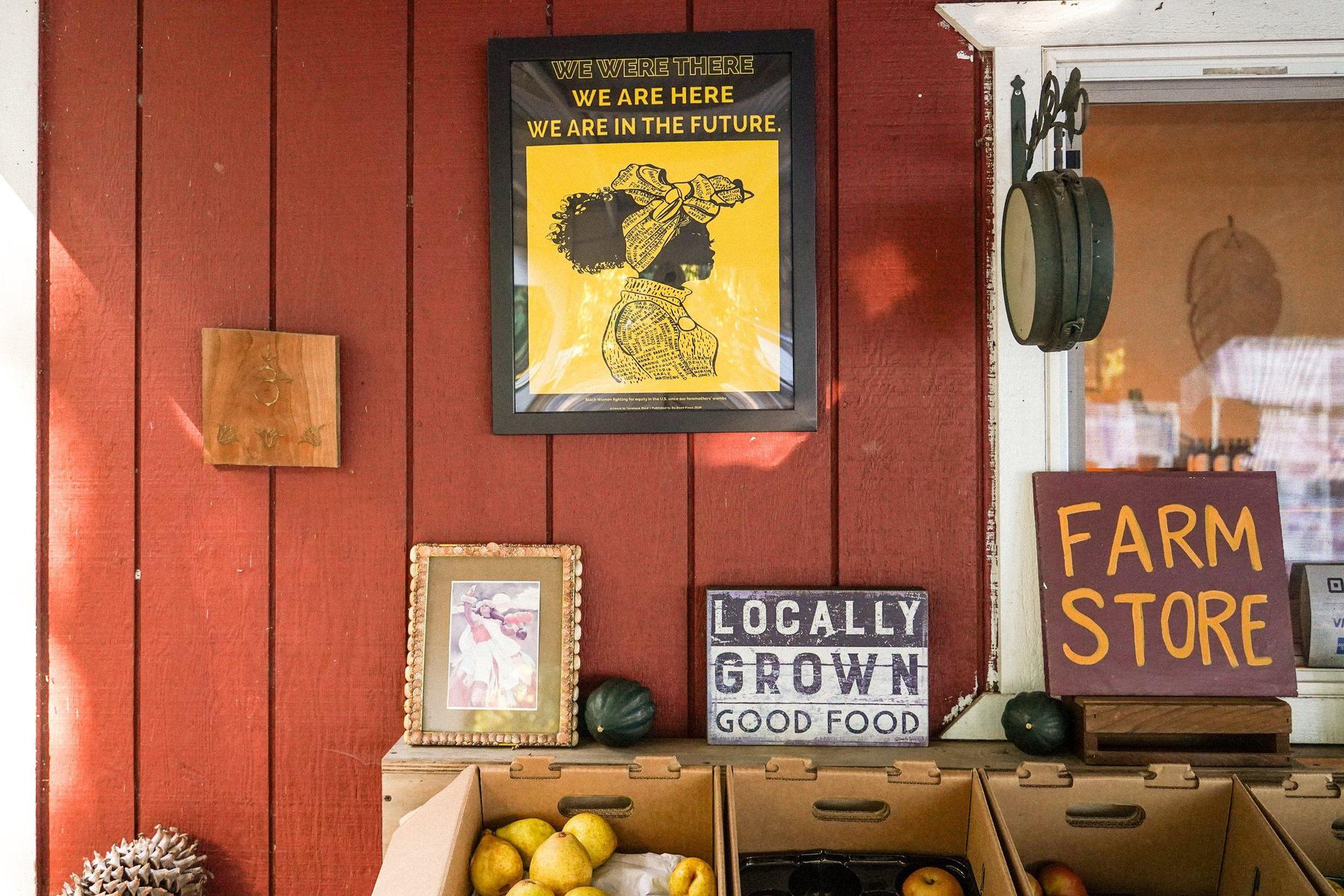
When Pandora Thomas welcomes visitors to Earthseed Farm, she says, “Welcome home.” A lush, 14-acre orchard in Sebastopol, California, Earthseed Farm offers a sanctuary for communities of color to rediscover and celebrate the connections between human and “more-than-human kin.”
Founded by Thomas in 2021, the farm embodies a vision of environmental and social justice rooted in sustainable land stewardship and Afro-Indigenous practices. As an educator, activist, and leader in permaculture, Thomas created Earthseed with the mission to reconnect communities of color to the land. Her work aims to address the historical and systemic barriers that have kept marginalized communities from farming and environmental leadership, and lift up the Afro-Indigenous wisdom that has stewarded the land for millennia.

At Earthseed, the principles of permaculture—working in harmony with natural ecosystems—are not only used to cultivate food but also to nurture a space for education and healing. Through hands-on workshops, “U-pick” harvesting, training programs, and retreats, the farm equips people with skills to grow food sustainably, tend to the earth, and become more resilient in the face of climate challenges.
Waverley Street’s Jared Blumenfeld spoke with Thomas about her vision for his podcast, Podship Earth.
Jared Blumenfeld: So, Pandora, tell us a little bit about the farm that we're standing on right now.
Pandora Thomas: So this is Earthseed farm. We are the fourth generation of stewards tending this land who weren't Indigenous folks. Myself and a future collective of Afro-Indigenous permaculture designers will be stewarding this land, which is a 14-acre fruit kin orchard, in hopes to create a space where Afro-Indigenous folks can lead a journey reconnecting back to our more-than-human kin. This place is perfect for that, because there's over 4,000 tree kin. But more than that, there's millions of other critters. We have mountain lions and bobcats and coyotes coming out. We have millions of earthworms that we're already seeing and snakes and just critters everywhere. We have our peregrine falcon that protects us.
When we found this place, it was like it was ready to hold our dreams, our visions, also our sorrow and our stories. These trees said, ‘You know what? We are more than just trees. We are also your ancestors, your co-dreamers, and we really want to nourish and heal the human communities that come and harvest from us.’
14
acres








4 k +
trees
Blumenfeld: How did you make the decision to look for a farm that could be Earthseed?
Thomas: My mother was born in Cheraw, South Carolina, on a farm. They were sharecroppers, but that's what really connected my family to the earth. I was raised connected to the earth with stories. Even in my church, I was really raised to respect all living things. So I'd say in my teens, I was like, one day, I will live with land. I didn't know what it looked like, but I knew that I was supposed to be able to wake up and listen to soil and birds and our more-than-human kin, and not just the city craziness. I feel like humans are listening way too much to other humans and to things that are not guiding us back to our true core. And if we're going to do anything about the changing climate, it's more rooted in the systems that give us life that are out of whack because of our misuse of them.
So the longer term goal is that this farm can not only teach us to reconnect to our more-than-human kin, but also have environmental education programming rooted in Afro-Indigenous practices and Black folks stewarding our land with Indigenous people in right relationship.

Blumenfeld: Tell me about the house.
Thomas: We named it the Carver-Tubman Home, after George Washington Carver and Harriet Tubman. We also invite Black folks to just come and relax and be happy here. So it's designed really beautifully. We bought a lot of Black-owned products, and there's art from Black artists, friends of ours. There is an opportunity to showcase permaculture strategies, even in the house, capturing the water directly on site here at the house, instead of using the water from the well that gets pumped up the hill, getting a backup battery for our solar power, so that if there was an emergency, people could actually come here, maybe charge their phones or do what they need. There is potential for having this house be a showcase of integrating what permaculture could look like in an urban setting, growing food on decks.
I mean, we own stuff, Black people, you know, we have stuff. But to have a beautiful, 14-acre orchard, you don't realize, wow, we really don't have access to spaces like this in the country. I still teach at places here in Sonoma, and I could say, for the 20 years I've been doing it, it's usually me and maybe my mom or a few Black and brown folks that get invited. But we're not the ones making the decisions about how stewarding happens.
And there's a lot of people doing this all over, and we've always been doing it, but Sonoma has been kind of lacking, because we can't afford anything here. So that's also the miracle, because I was able to pull from my, like, 30 years of doing this environmental work, being in these mostly white and some people of color rooms, calling on that community, and they helped raise the money to buy this place.

Blumenfeld: So what's your dream like three, four years from now? What do you hope happens?
Thomas: What I want to see in three to four years is that this place really tells us what should be here and that we can listen, and that is just a beautiful gathering space for human and non-human, led by Afro-Indigenous permaculture folks, celebrating life and growing what we need and feeling safe, not fearing the earth or any of what earth's trying to teach us about ourselves. We really are learning about each other, and that the larger world would be shifting and focus more on learning the lessons the earth has to teach us. Earthseed can be a little sliver of an oasis that keeps putting that out into the world.
To leanr more about our grantee partner, Earthseed Farm, visit https://www.earthseedfarm.org/


